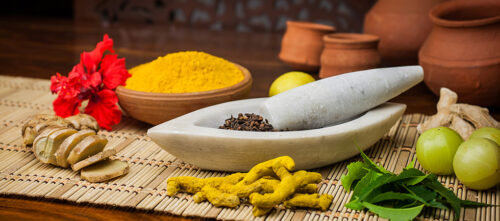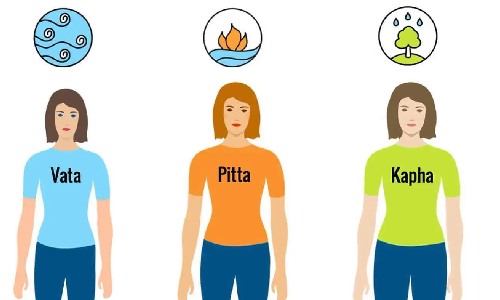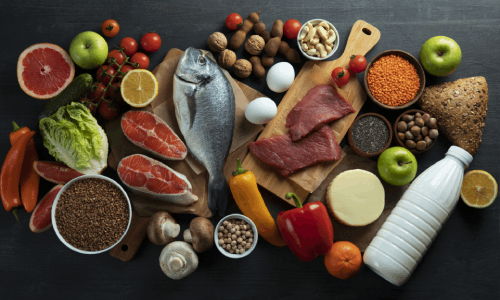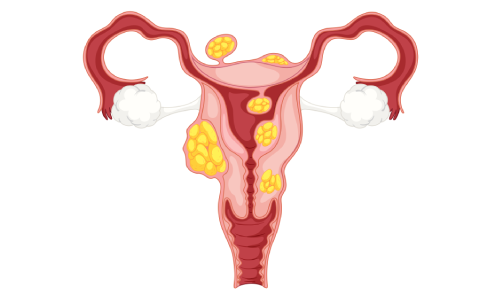An Ayurvedic diet is a major part of my treatment plan for my patients for all health conditions. According to Ayurveda, food is medicine. It not only provides you energy to sustain, but it also heals you. I am someone who gives importance to diet. 80% of my treatment involves food and the rest 20% involves medicines. If you know me, you might have seen me talking about gut health all the time. Poor gut health is the root cause of all diseases. So, the best way to have a balanced gut health is to have foods that are suitable for you. Ayurveda believes that each person is unique. That’s why each of my patients is given a personalized diet plan tailored to suit their body type (Prakriti), Dosha imbalances and health conditions. In this blog, let us explore more about the power of the Ayurvedic diet. Understanding Ayurvedic Nutrition Ayurveda defines good health (as mentioned in Sushruta Samhita) as follows: “Sama Dosha Sama Agnischa Sama Dhatu Mala Kriyaaha Prasanna Atma Indriya Manaha Swastha Iti Abhidheeyate” A person is in good health when their Doshas, Agni, Dhatus (body tissues) and Mala (waste products) are in balance. Also, the Mana (mind), Indriyas (sense organs) and Atma (soul) of the person must be in a pleasant state. And for all these to be in balance, food plays an important role. Food, when not digested, turns into Ama (toxins). The accumulation of Ama in the body, therefore, causes imbalances in your Agni and Doshas; as a result, this can lead to diseases. That’s why it is important to have light, digestible foods that suit you. Furthermore, Ayurveda emphasizes the significance of consuming locally sourced and seasonal foods. It’s crucial to adjust your diet to accommodate changes in weather and seasons. This helps keep your dominant Doshas in check and boost your immunity according to the season. Foods based on your Doshas Each person has a unique constitution of the three Doshas, out of which one or two may be predominant. So, it is important to eat foods that help balance out your predominant Doshas. You can consult an Ayurvedic doctor to figure out your Prakrit as well as Dosha imbalances and to guide you regarding your diet. Vata Dosha Vata Dosha is associated with the characteristics of air and space; moreover, it embodies qualities such as lightness and mobility. This Dosha governs movement, creativity and communication. Vata people are full of energy, possess great creativity and have quick-thinking abilities. Imbalanced Vata can result in feelings of anxiety, fidgetiness and difficulties with digestion. Foods to balance Vata: Hot and prepared foods, such as soups, thick stews and vegetables cooked by steaming. Healthy fats, like ghee, avocado and sesame oil. Basic spices, such as cumin, ginger and cinnamon. Pitta Dosha Pitta Dosha is, indeed, the combination of fire and water in the body. Furthermore, it regulates the body’s energy usage and, consequently, the process of breaking down food for energy. Pitta people tend to be passionate, committed, and able to maintain their focus on objectives. However, an imbalance in Pitta may manifest as irritability, inflammation, and digestive issues. Foods to balance Pitta: Cooling foods like Cucumber, mint, and coconut. Foods with robust and intense tastes, such as pungent leafy greens and fenugreek. Avoid overindulging in extremely spicy, sour or fried foods. Kapha Dosha Kapha Dosha, resembling the elements of earth and water, provides the body with solidity, power and hydration. Individuals who possess a robust Kapha constitution typically exhibit composure, compassion and willingness to assist others. Excessive Kapha can result in feelings of fatigue, weight gain and congestion. Foods to balance Kapha: Warm and spicy foods, such as red peppers, garlic, and ginger are great. Leafy greens, beans and quinoa are examples of foods that are not heavy and do not leave you feeling overly satiated. Limit your consumption of dairy and high-fat foods. Foods that promote healing Ayurveda categorizes foods based on their taste (Rasa), potency Virya), and post-digestive effect (Vipaka). Incorporating the six tastes – sweet (Madhura), sour (Amla), salty (Lavana), bitter (Tikta), pungent (Katu) and astringent (Kashaya) – ensures a well-rounded diet that satisfies the body’s needs and promotes healing. Many everyday ingredients possess remarkable healing properties, according to Ayurveda. Turmeric, for instance, is revered for its anti-inflammatory and antioxidant properties, making it a staple in Ayurvedic cuisine. Other examples include ginger, cilantro, and cumin, each offering unique health benefits. To reset gut health, emphasis is placed on easily digestible foods such as cooked vegetables, whole grains like basmati rice, and nourishing soups. Ayurvedic nutrition extends beyond physical health to encompass mental and spiritual well-being. Therefore, have foods like almonds, saffron, and ghee that help nourish the mind and enhance spiritual awareness. Foods based on seasons According to Ayurveda, there are 7 seasons (Ritu) – Vasanta Ritu (spring), Greeshma Ritu (summer), Varsha Ritu (monsoon), Sharad Ritu (autumn), Hemanta Ritu (late autumn or pre-winter) and Shishira Ritu (winter). Seasonal changes, consequently, affect your body and, as a result, bring about imbalances in your Doshas and Agni. So, it is important to eat accordingly. During Vasanta Ritu, consume dry (Ruksa) and cold (Sheeta) foods. You can have foods with Madhura (sweet) taste during Greeshma Ritu. Foods with Lavana Rasa are the best for Varsha Ritu. During Sharad Ritu, have dry and cold foods with Madhura, Tikta and Kashaya Rasas. Snigdha (unctuous) and Ushna (hot) foods are, therefore, best suited for Hemanta and Shishira Ritu. Ayurvedic principles of eating Here are the 10 principles of eating (Ahara vidhi vidhana) recommended by Ayurveda: Ushnamashneeyat: Eat warm food. Snigdhamashneeyat: Eat unctuous food (not dry). Matravadashneeyat: Eat the right quantity. Jeerneashneeyat: Eat food only after the previous meal gets digested. Viryaavairudhamashneeyat: Eat compatible foods. Ishtadeshe ishtasarvopakaramashneeyat: Eat food in a good place and also, ensure you… Continue reading Ayurvedic Diet and the Art of Mindful Eating
Ayurvedic Diet and the Art of Mindful Eating









